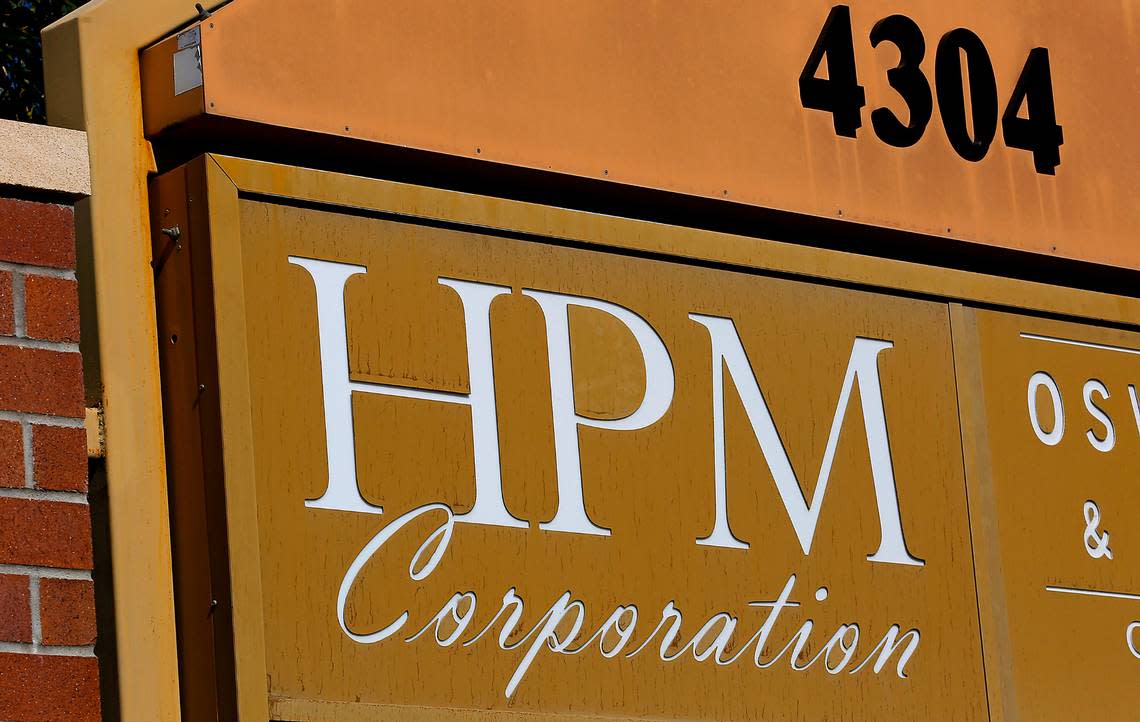Feds bar Hanford company from new contracts. It’s accused of COVID loan fraud
The Tri-Cities company that provides occupational medicine services at the Hanford nuclear reservation has been suspended by the Small Business Administration from applying for or receiving federal contracts.
SBA lists HPM Corp. with a status of “active exclusion” on new federal contracts and subcontracts pending an investigation.
Current owner Hollie Phillips Mooers and her husband Grover Cleveland Mooers III, who until recently was the business co-owner, also have been suspended from new government contracts.
The Department of Energy said in a statement Wednesday that it agreed with the SBA decision to suspend HPMC and the Mooers from conducting government business as necessary to protect the public interest.
In March, the company reached a $3 million agreement with the U.S. Attorney’s Office in Eastern Washington to settle accusations of COVID loan fraud.
Among the reasons that companies can be barred from new federal contracts is a lack of business honesty and integrity.
“We recognize the fraudulent activities taken by the HPMC owners do not reflect the service and commitment of the corporation’s workforce and medical providers,” DOE said in a statement.
DOE said the company is under new leadership. Hollie Mooers previously served as president, but Laurie Miller now is shown as president on the HPM Corp. website.
“Under new leadership and with strict adherence to Hanford’s ethical compliance culture, DOE is confident that the HPMC workforce will continue to provide the highest quality healthcare services to the Hanford workforce through the completion of its current contract,” DOE said.
The company did not immediately respond to a Herald request for information Wednesday.
The small business based in Kennewick currently holds a DOE Hanford contract for up to seven years valued at about $152 million.

The contract, awarded at the end of 2018, has a base period of three years and two option periods of two years each. It currently is on its first option period at Hanford, which ends Dec. 31, 2023.
New Hanford contract planned
The company has held contracts since 2012 to provide occupational medicine services at the nuclear reservation to ensure the health and safety of about 9,000 workers assigned to manage the site and clean up radioactive and hazardous chemical waste and contamination.
It operates two clinics for Hanford workers, one in Richland and one in the center of the Hanford site.

On July 14, DOE released a request for information as it makes plans to award a new contract for Hanford occupational medical services after the end of HPMC’s initial contract option period ends in 2023.
DOE indicated then that a new contract was needed as the Hanford vitrification plant moves to 24-hour operations to immobilize radioactive waste in glass for permanent disposal.
The Hanford site adjacent to Richland in Eastern Washington was used from World War II through the Cold War to produce about two-thirds of the plutonium for the nation’s nuclear weapons program.
Waste left from its production years includes 56 million gallons of radioactive and hazardous chemical waste n underground tanks.
DOE has not asked for bids yet for its proposed new occupational medicine services, put is seeking market research and industry capability information by Aug. 4 as it makes plans.
HPM accused of fraud
In March, HMPC and its then owners, agreed to pay nearly $3 million in connection with a loan of just over $1.3 million in April 2020 from the Coronavirus Aid, Relief and Economic Security, or CARES, Act.
According to an investigation by the DOE Office of Inspector General, the loan money was not spent by the contractor but was transferred in July 2021 to the personal checking account of Hollie Mooers, the founder and president of HPMC, and her husband, Grover Cleveland Mooers, then named as co-owner.

That was about three months after the loan and interest were forgiven.
In September 2021, about two months after the loan was transferred to the Mooers’ personal account, the full amount of the loan money was distributed through Cornerstone Wealth Strategies to various charities, according to a federal court document filed Wednesday.
HPMC officials said during the DOE Office of Inspector General investigation that the the donations were handled as personal donations of the Mooers rather than donations from HPMC.
HPMC continued to receive full payments under its DOE contract, and in fact its business at the Hanford site increased because it was awarded additional contract work related to testing for COVID-19 and vaccine administration, according to a court document.
The DOE contract included several payment methods, including fixed prices for some services, reimbursement of building and equipment costs, and payment to be negotiated for additional work.
HPM criminal charges deferred
Grover Cleveland Mooers was accused in a federal court document of knowingly provide false statements in support of HPMC’s application for loan forgiveness.
He falsely certified that the loan was used to cover HPMC business-related expenses and that the loan was eligible for forgiveness, which it was not, according to the court document.
In the application to have the loan forgiven, Mooers certified that the loan was used to pay for eligible costs in the CARES Act Paycheck Protection Program. That could include payroll to retain employees, mortgage interest, rent, utilities, operation costs, property damage, supplies or worker protection.
Under the terms of an agreement to resolve HPMC’s criminal and civil liability in connection with the loan, HPMC will pay the federal government almost $2.7 million in restitution and penalties.
Criminal charges against the company will be deferred for three years and during that probation it must not commit any criminal or civil offenses.
The Mooers must pay an additional $250,000 of their own money to the federal government, according to the U.S. Attorney’s Office of the Eastern District of Washington.
Grover Cleveland Mooers has agreed to step down from HPMC, and not serve as a principal employee, manager or adviser for HPMC for three years starting in spring 2022.
HPMC also has agreed to pay for an independent audit of the company’s accounting practices related to expenses, distributions, dividends, salaries and expenses to the Mooers or any other HPMC officers, owners or shareholders.
The initial complaint about HPMC was made by a DOE official to the DOE Office of Inspector General, according to a federal court document.
DOE IG report
In addition, HPMC submitted inappropriate bills to the Department of Energy, according to an audit by the Department of Energy’s Office of Inspector General made public at the end of 2021.
It found that DOE reimbursed HPMC for work without reasonable assurance that the costs met reimbursement requirements.
By the end of 2021 DOE had already resolved $1.3 million of what the Office of the Inspector General called “misallocated costs” after increasing oversight starting in 2016.
But in a sampling of records the audit found an additional $44,100 of inappropriately billed costs from 2013 to 2020 needed to be addressed. A review of the remaining billed costs should still be done, the report said.
The audit report also found that HPMC did not always follow federal requirements to determine the best value for taxpayers when it awarded subcontracts for services by seeking bids when possible.
